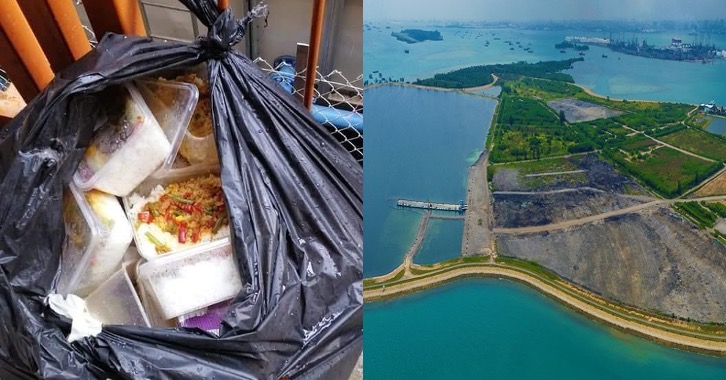Follow us on Telegram for the latest updates: https://t.me/mothershipsg
Hands up if you've ever seen buffet diners taking food and leaving them uneaten, or done National Service and thrown away some of the food provided.
But the National Environment Agency (NEA) is exploring a framework for entities that generate a large amount of food waste. This will require them to measure and report the food waste segregated for treatment.
Singaporeans waste a lot of food
Food waste is part of the ugly side of Singapore. While many Singaporeans may be comfortable enough to not worry too much about food waste, it is also a major contributor to pollution.
In 2019, Singapore generated no less than 744,000 tonnes of food waste. Over the past 10 years, the amount of food waste generated in Singapore increased by 20 per cent. Besides the effort it takes to collect and dispose of food waste, it also contaminates recyclables (think of leftover food in a plastic container) and therefore hinders recycling efforts.
The 2019 Zero Waste Masterplan aims to increase recycling and reduce the amount of waste sent to Semakau Landfill, thereby extending the "lifespan" of the landfill beyond 2035.
New framework
The reporting framework would help business-owners to realise how much food waste is being generated, and hopefully incentivise them to reduce waste.
Reporting would also help authorities to check if food waste is being properly sorted and treated, and the data collected would help in future policy-making.
NEA will consult industries in the second quarter of 2021 to gather more information on its proposal.
It will support industries in making the necessary preparations in the run-up to 2024, and companies can tap into the 3R Fund to install on-site food waste treatment systems.
Legislation in place to address food waste
Under the Resource Sustainability Act enacted in Oct. 2019, developers of new large commercial and industrial premises must allocate and set aside space for on-site food waste treatment systems in their design plans, from Jan. 2021 onwards.
Starting in 2024, large commercial and industrial food waste generators must segregate their food waste for treatment.
NEA also announced in 2020 that food waste treatment requirements would be applied to hotels, shopping malls and industrial premises that meet certain requirements.
All this helps to ensure that useful stuff that can be used for biofuel, animal feed or fertiliser can be saved and used again, instead of being incinerated or filling up landfills.
NEA and PUB will also be studying co-location of a food waste treatment facility with a greasy waste treatment facility at PUB's Changi Water Reclamation Plant.
Currently, about 12 tonnes of source segregated food waste from 25 premises is sent to a demonstration facility at Ulu Pandan Water Reclamation Plant each day. The food waste is co-digested with used water sludge to generate biogas.
Related story:
Top image from Masagos Zulkifli's Facebook page.
If you like what you read, follow us on Facebook, Instagram, Twitter and Telegram to get the latest updates.

